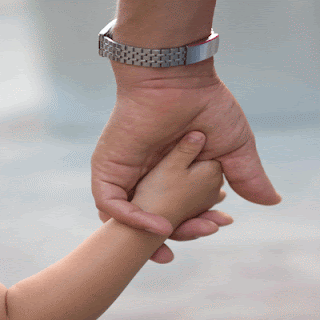
By: Coby Edmunds
A parent, whether single or with a partner, is often blamed for anything that goes wrong with their children. Blame for the perceived wrongdoings of our children is probably one of the hardest burdens that we as parents have to carry.
The truth is that parents these days are time poor and their children are, more than ever before, influenced by many powerful outside sources. Most parents are doing the best they can with the knowledge they have. For the majority of people, this knowledge is based on how they were parented themselves. But times have changed, what worked for their parents and for them as children may not work now for their own families. Many people find that relying on what they learned from their own experience isn’t sufficient.
With just about everything that we do in life, we learn from our ‘mistakes’. Some of our mistakes are easy to move on from, others can last a lifetime and cause untold heartache.
Most people are born with parental instincts so parenting does come naturally to a certain extent. But who among us can say that they have not made mistakes? The evidence of some of our hasty parenting decisions can be in the form of defiant, uncommunicative or sullen children and teenagers, and these mistakes are not easy to live with.
Is there a better way? Yes, there is. Learning to become an effective parent can save a great deal of heartache.
Effective parenting is a learned skill and like just about everything else that we do, the more we practice effective parenting techniques, the better and more effective we become at parenting.
Effective parenting training gives us a better understanding of the complexities of our family, the pressures that our children face in the modern school setting, and the added pressure from part time work that many young people experience. It teaches us how to listen, understand and communicate with our children so that we do not make things worse, whilst still understanding that every child, family and situation is unique.
Can effective parenting training (EPT) help?
In short, effective parenting training takes some of the guess work out of parenting and provides strategies and tools that can be used to create a more harmonious home. If things are pretty good at home, proactive parenting is even better.
* EPT gives parents the opportunity to stop and look at their home situation from a different perspective. What were your goals when you started your family? EPT is a big step towards achieving those goals.
* EPT can help parents identify if they are working with or against each other. How do they reach consensus?
* EPT provides guidelines for putting things into order at home – creating a ‘bottom line’, revisiting values and establishing rules, boundaries and consequences. This step alone is critical. Too many rules become unworkable but rules and boundaries provide a baseline for the whole family and a structure with foundations for feeling safe with everyone knowing what is expected of them.
* Rules, boundaries and structure are meaningless to children and teenagers without loving, sincere and effective communication. EPT will teach parents how to listen and communicate effectively rather than inflaming situations.
* EPT will assist parents in understanding what their children need to experience in order to feel loved. Most parents do try to show their love but do not understand that what is perceived as love to one person may be quite different to another.
* Parents will understand how their children learn. Once again, because we are unique individuals, we all learn differently. This understanding can provide the parent untold and unique opportunities to help their children gain confidence at school.
With these tools and a firmer foundation upon which to move their families forward in a positive direction, parents and their children will feel empowered.
Children are resilient and forgiving and they do want to feel the love their parents have for them. It is essential for their growth into healthy young adults. Where there has been continuing conflict you can be pretty sure that some of those loving feelings have been lost. They can be reestablished. There has to be at least one ‘adult’ in a situation to turn things around; someone who is willing to take the responsibility to get things moving in the right direction.
Beginning parents will probably have a good understanding of some of the pitfalls in modern parenting – prevention is so much better than any cure.




